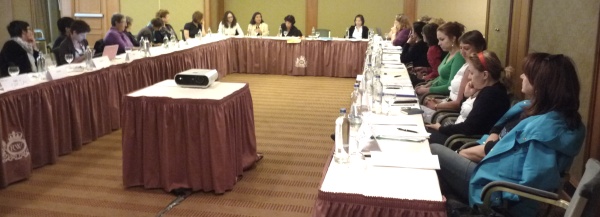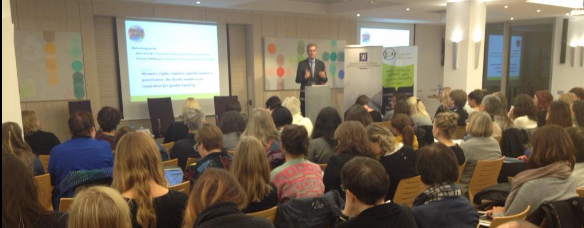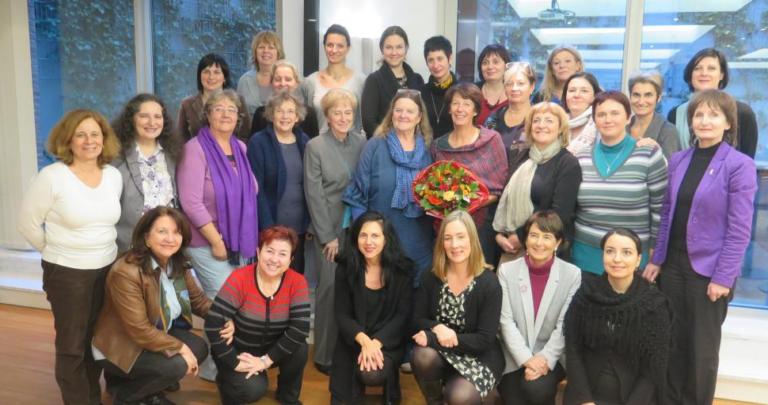[Brussels, 22 June 2011] The EWL Observatory on Violence against Women held its meeting in Brussels on 17-18 June. Composed of experts from 30 countries with extensive experience in different forms of male violence against women, the Observatory fuels the EWL work by providing expertise and content and has been instrumental in maintaining a global perspective on violence against women and in identifying critical and emerging issues.
This year’s meeting gathered experts from 26 countries, who shared their views on present challenges and strategies maintain progress and improve the situation of millions of women who are in danger. Among them, the gender neutrality of many governments’ policies is a sign of their continued reluctance to admit the existence of VAW as a structural phenomenon. The financial crisis is used to reduce/cut financial support for NGOs providing services to victims, as well as for the implementation of national action plans or legislation on VAW (where these exist). Many countries reported shelters and services being discontinued or threatened to close because of lack of funds. Some experts did report of positive changes to legislation on VAW in their country (e.g. adding stalking or sexual harassment, amending laws on sexual violence, removing the obligation of victims to file complaints before action is taken by the authorities, etc.). All of these were shared with the UN Special Rapporteur on VAW, Rashida Manjoo, who was invited to participate in a session of the Observatory meeting, after the EU Regional consultation organised by the EWL. She explained her international mandate and reiterated that all governments have an obligation to take ‘reasonable’ action to prevent, protect against, prosecute, punish and provide redress for violence against women. ‘All forms of violence against women are human rights violations, and human rights are not negotiable, even in time of crisis, including economic crisis’, she said.
The meeting was also the opportunity to share strategies and experiences for reinforcing alliances at national level (including national observatories on VAW) and for developing their actions by using new tools such as social media. They discussed the EWL campaign on prostitution and other work currently developed by the EWL on VAW, such as the ‘Barometer on National Action Plans on VAW’ and the EIGE study on sexual violence against women done by the EWL and to which most of them are participating. The gaps in support measures, research and data on sexual violence against women are high everywhere and the experts strongly expressed the need for further action in this area. Finally, they agree that joint action would be helpful to put pressure for the signature and ratification of the Council of Europe Convention on Violence against Women, signed by only 13 Member States of the Council of Europe so far, and to the negotiation of which they actively participated.



